How to Easily Remove Rust From Tools
Have you ever accidentally left a tool out in the elements to rust? I have and because of my carelessness, I discovered how to remove rust from tools.
I knew I had a pair of red-handled clippers but had not seen them for a long while. A few weeks ago, while digging out compost to apply to my vegetable garden, my clippers appeared in the compost.
Hurray for finding my clippers! Boo to the rust that covered them.
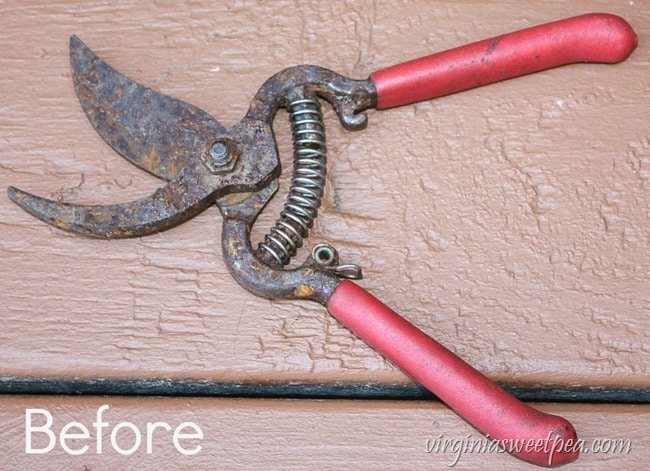
I learned that there’s an easy way to remove rust from tools with vinegar. Yes, vinegar, the kind that you probably already have in your pantry.
How to Easily Remove Rust From Tools
Supplies
- Vinegar
- Water
- Measuring Cup
- Bucket
- Wire Brush
- Drill with Wire Brush Attachment
- Steel Wool
- Toothbrush
- Rags
- Gloves
- Protective Eyewear
**I found that Vinegar, rags, gloves, and a wire brush attachment for a drill are the essential items needed to clean a rusty tool. I used all supplies shown but the drill attachment beat the wire brush and toothbrush for cleaning the metal hands down.**
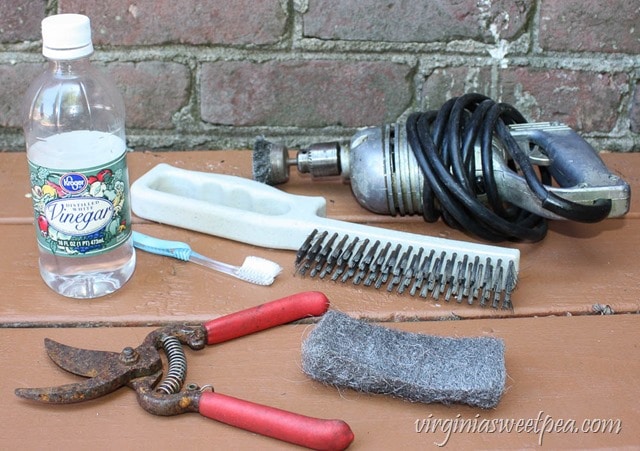
Procedure
1. Soak the Tool in Vinegar
Dilute vinegar with water to get a 3:1 ratio of vinegar to water. Pour mixture into a bucket, add your rusty tool, and let it sit overnight.
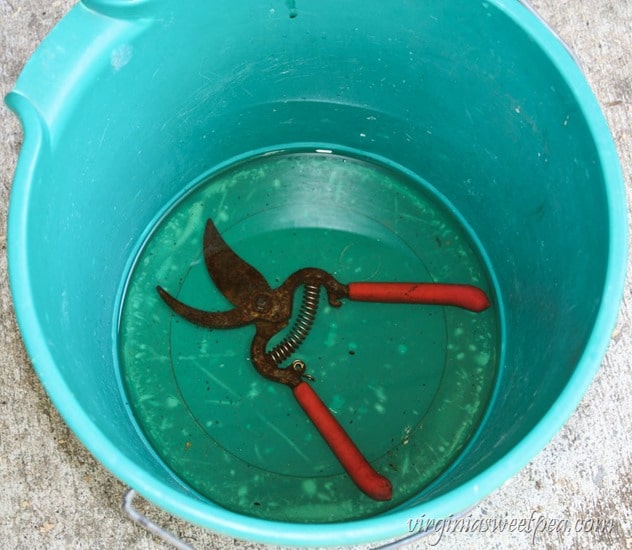
This is what I saw after two hours of soaking.
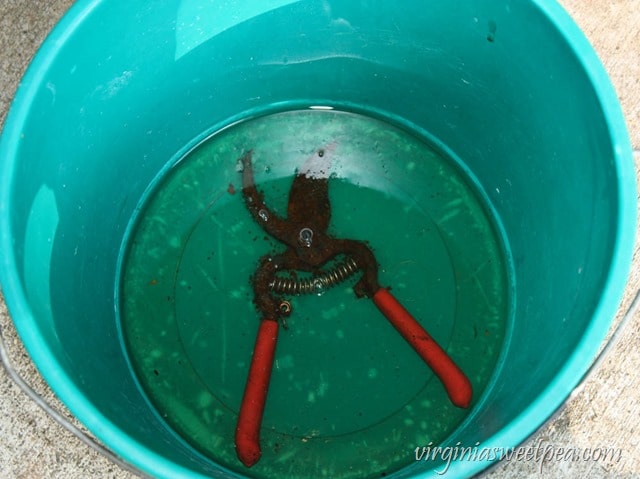
This it what I found the next morning. Lots of rust is in the vinegar/water mixture.
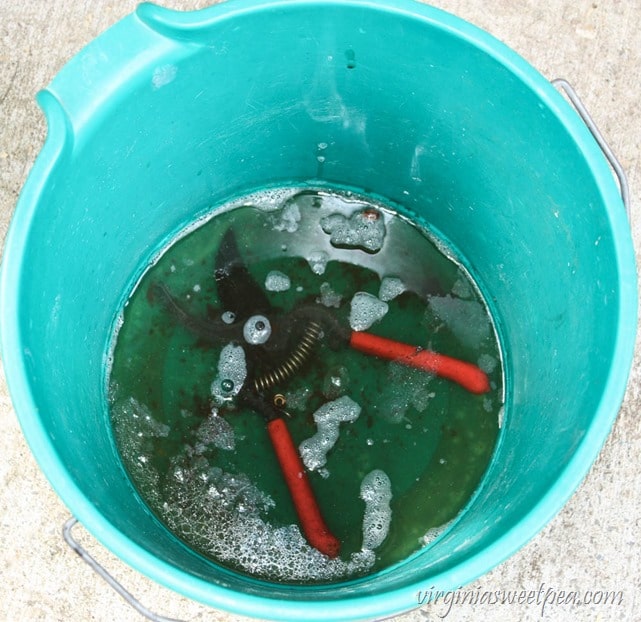
2. Rinse the Tool in Water
Remove the tool from the vinegar water mixture and rinse with water. I forgot to wear gloves for this step which was a mistake because I ended up with black hands and fingernails.
What a difference and I hadn’t yet scrubbed my clippers!
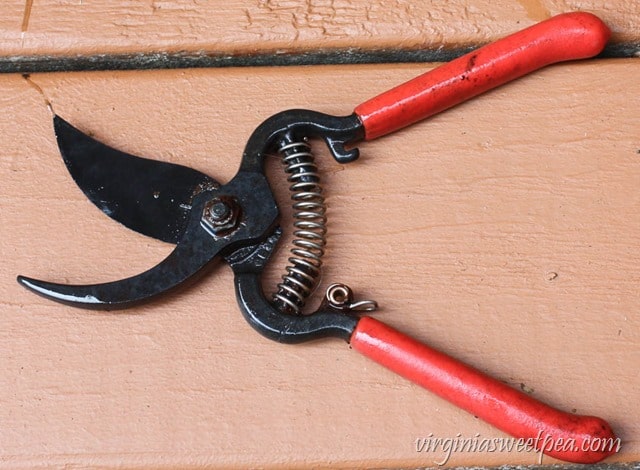
3. Clean the Metal
Dry the tool off with a rag and then clean all the metal parts using a wire brush, tooth brush, and steel wool. I found that the wire brush attachment on my drill was the easiest way to do this.
Be sure to wear protective eye wear when you clean metal, especially when using the wire brush attachment for a drill.
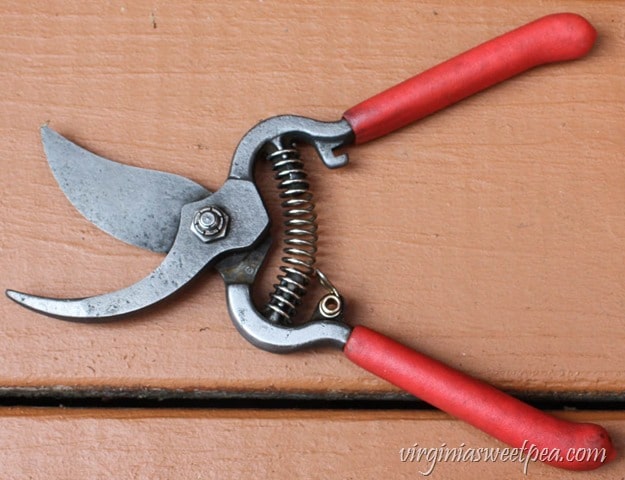
Did you notice that my drill is vintage?
This drill belonged to my grandfather and we must have inherited it with the wire brush in place.
I was looking through cabinets in the workshop for a wire brush to use for this project and just happened to stumble across it. I’m glad I did because it worked like a charm.
If you don’t have a wire brush attachment for your drill, I would get one if you have rusty tools to clean. An $8 wire brush will save you a lot of elbow grease.
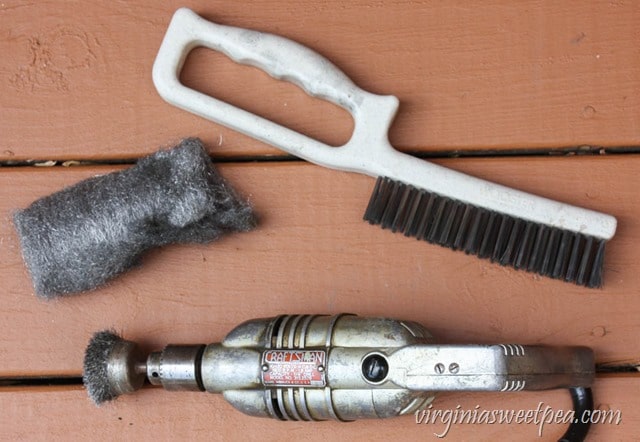
4. Oil the Tool
Apply a small amount of oil to the metal parts of the tool to prevent rust from forming in the future. I used mineral oil but my father-in-law told me that any oil should work.
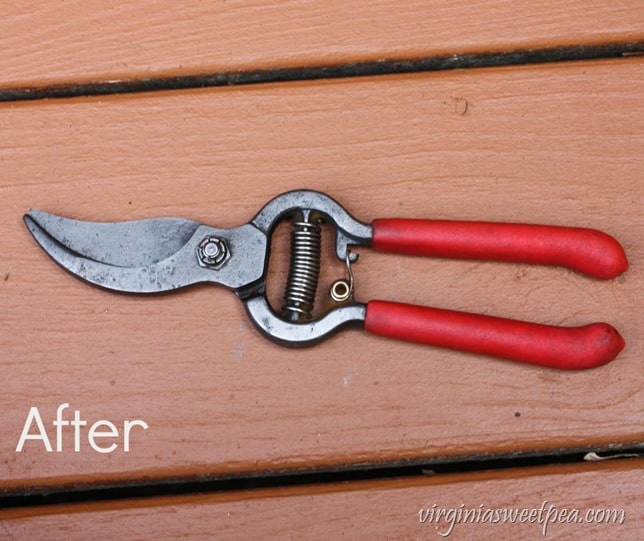
Back when I watched Martha Stewart’s TV shows, I remember that she kept a flower pot full of sand mixed with motor oil in her gardening shed. She stored her trowels and clippers in the pot to prevent rust.
I thought that I might need to sharpen my garden clippers after I cleaned the rust off of them but it wasn’t necessary. If your tools need sharpening, a sharpening stone will do the job.
I feel like I have a new set of clippers now that I’ve found these and given them a good cleaning. If you have rusty tools, try this method of cleaning them. I was surprised at what a great job vinegar did at removing rust.
Favorite Projects
If you liked this post, check out more popular projects.
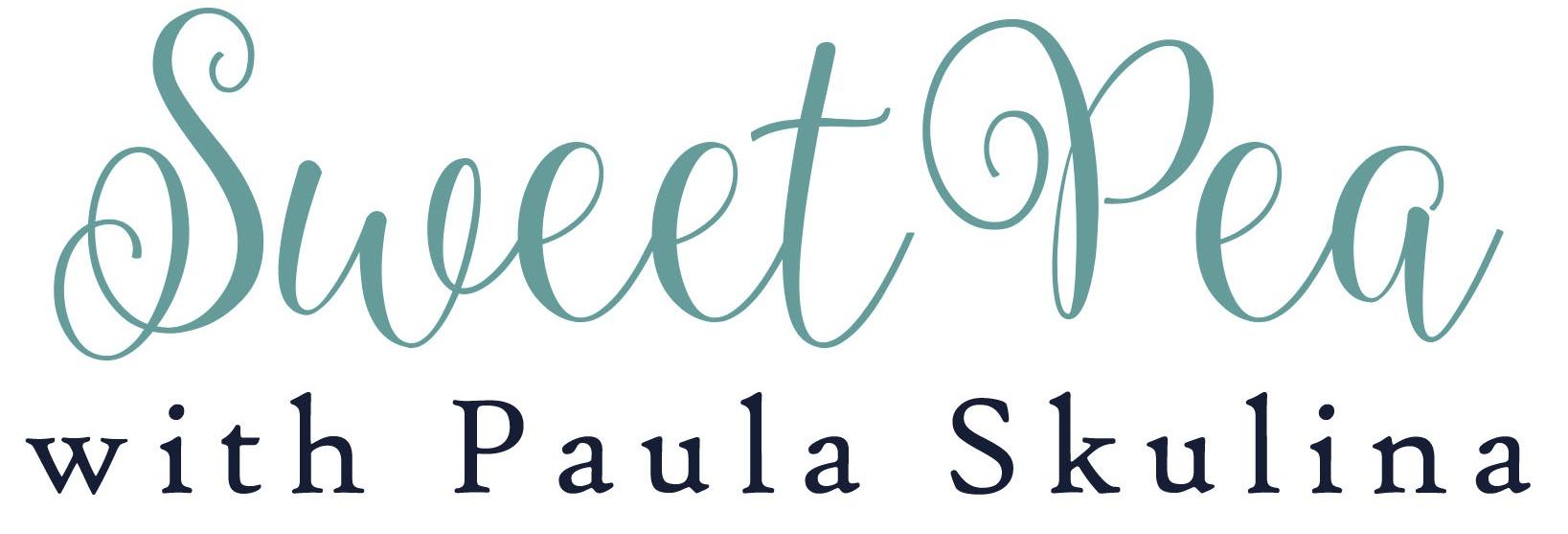

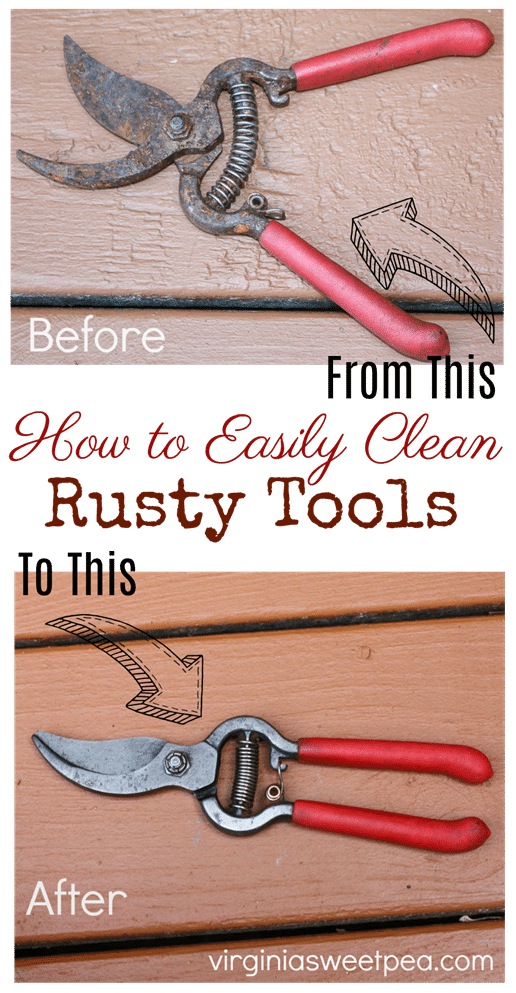

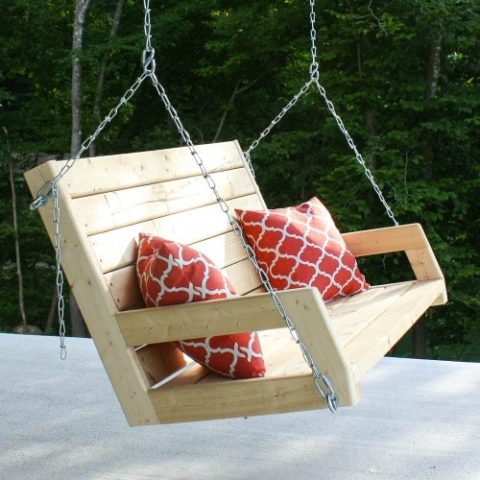
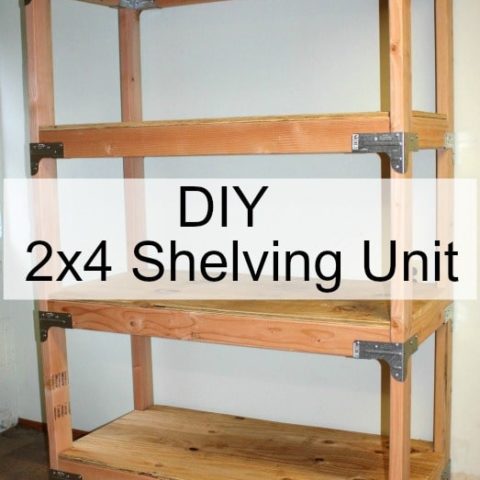
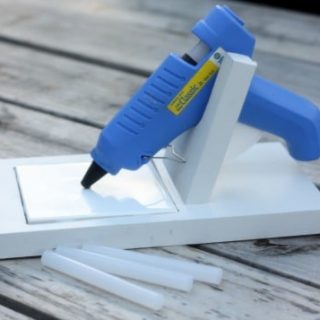
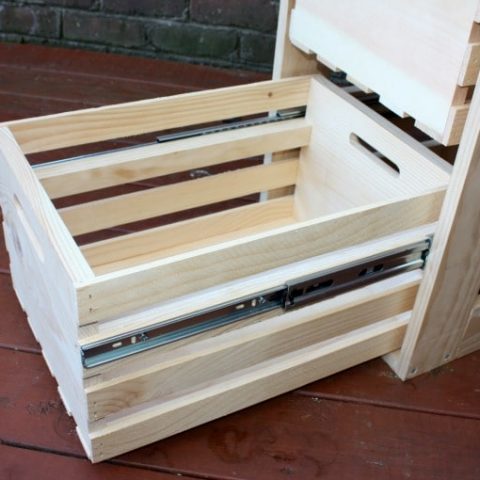

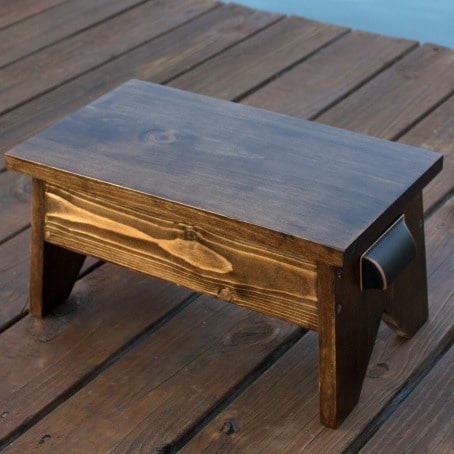
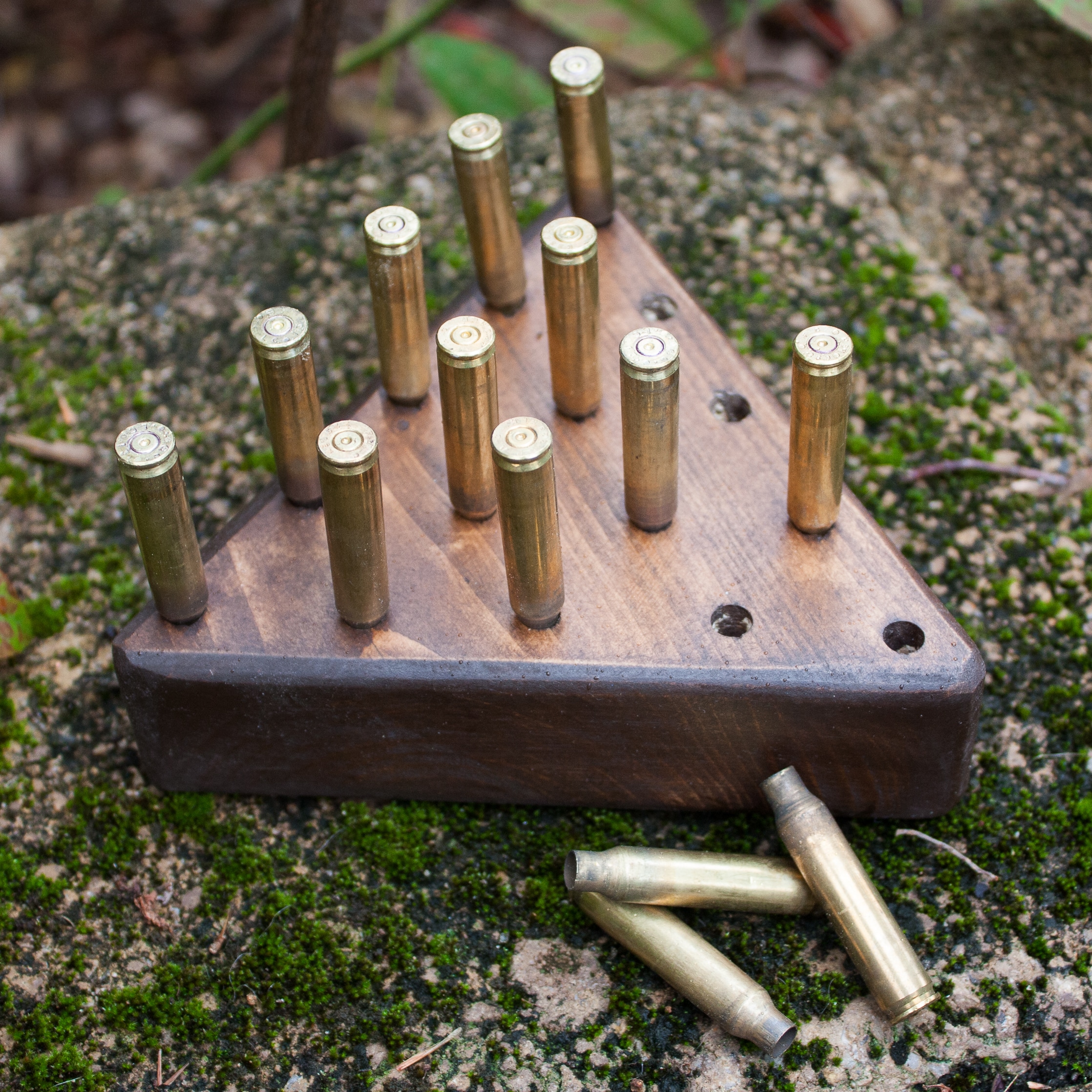
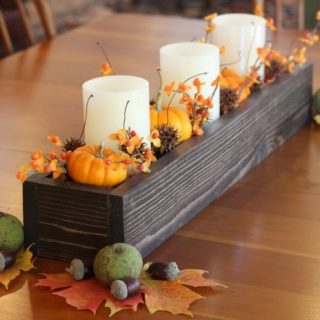
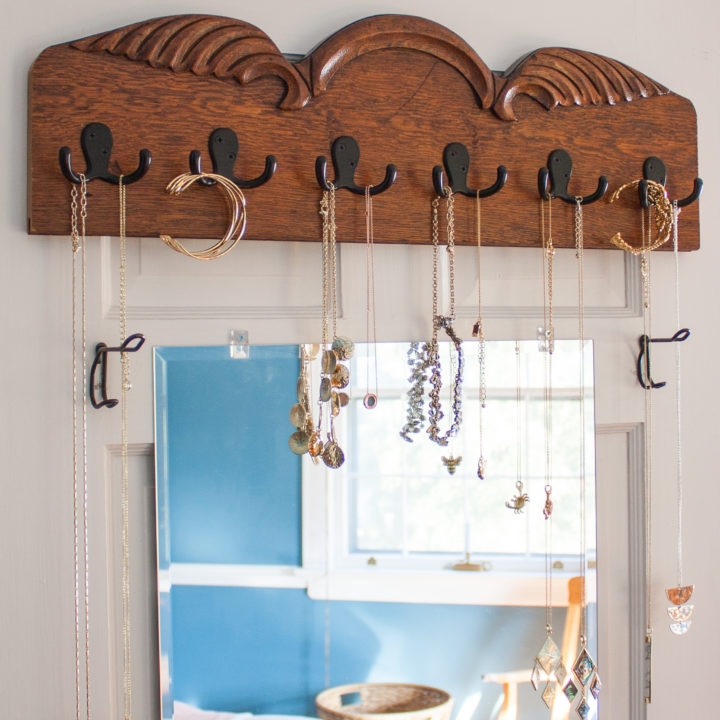


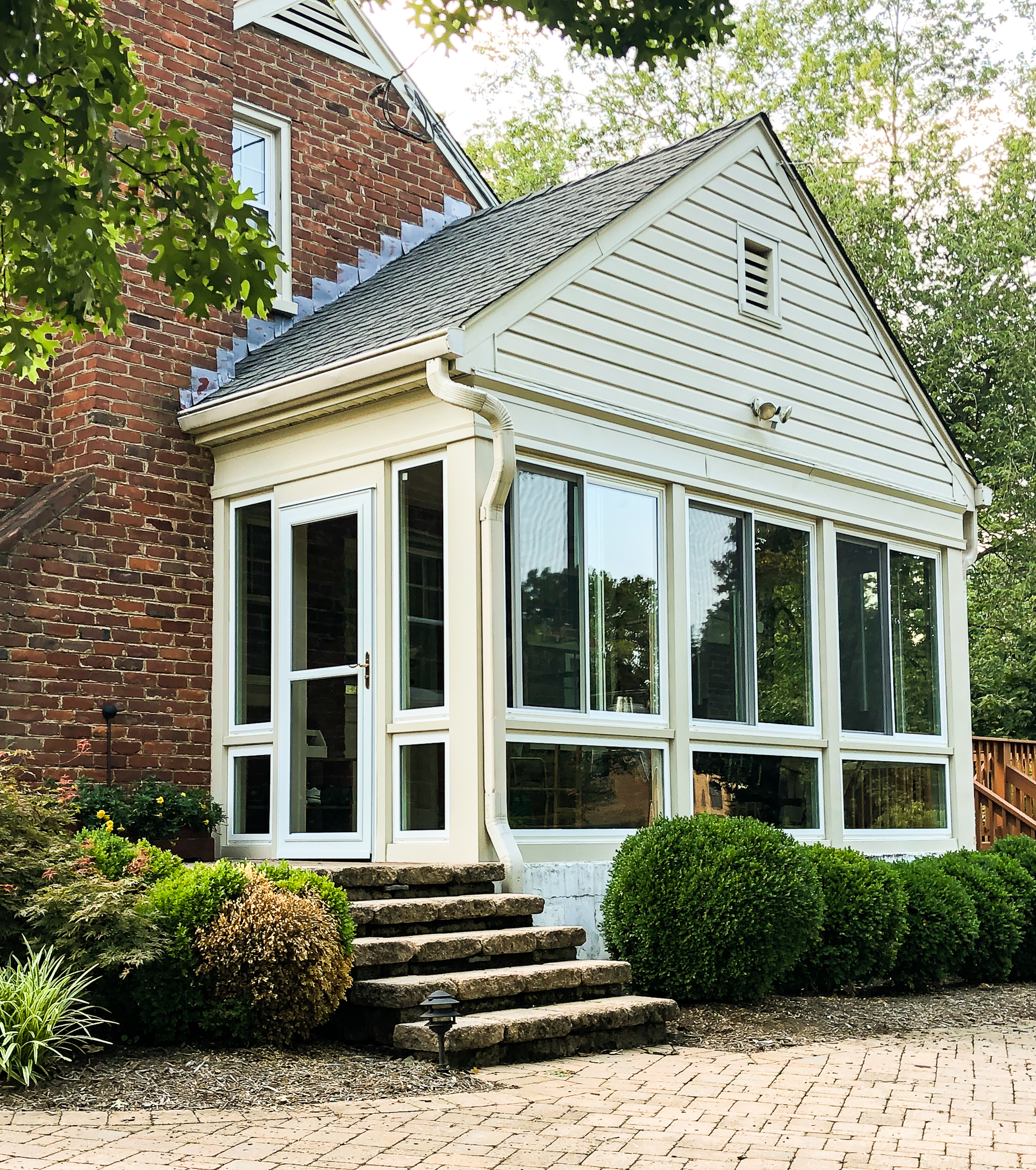
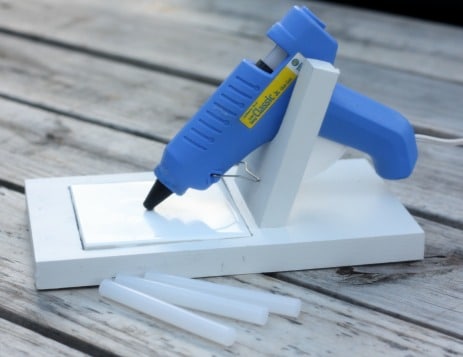
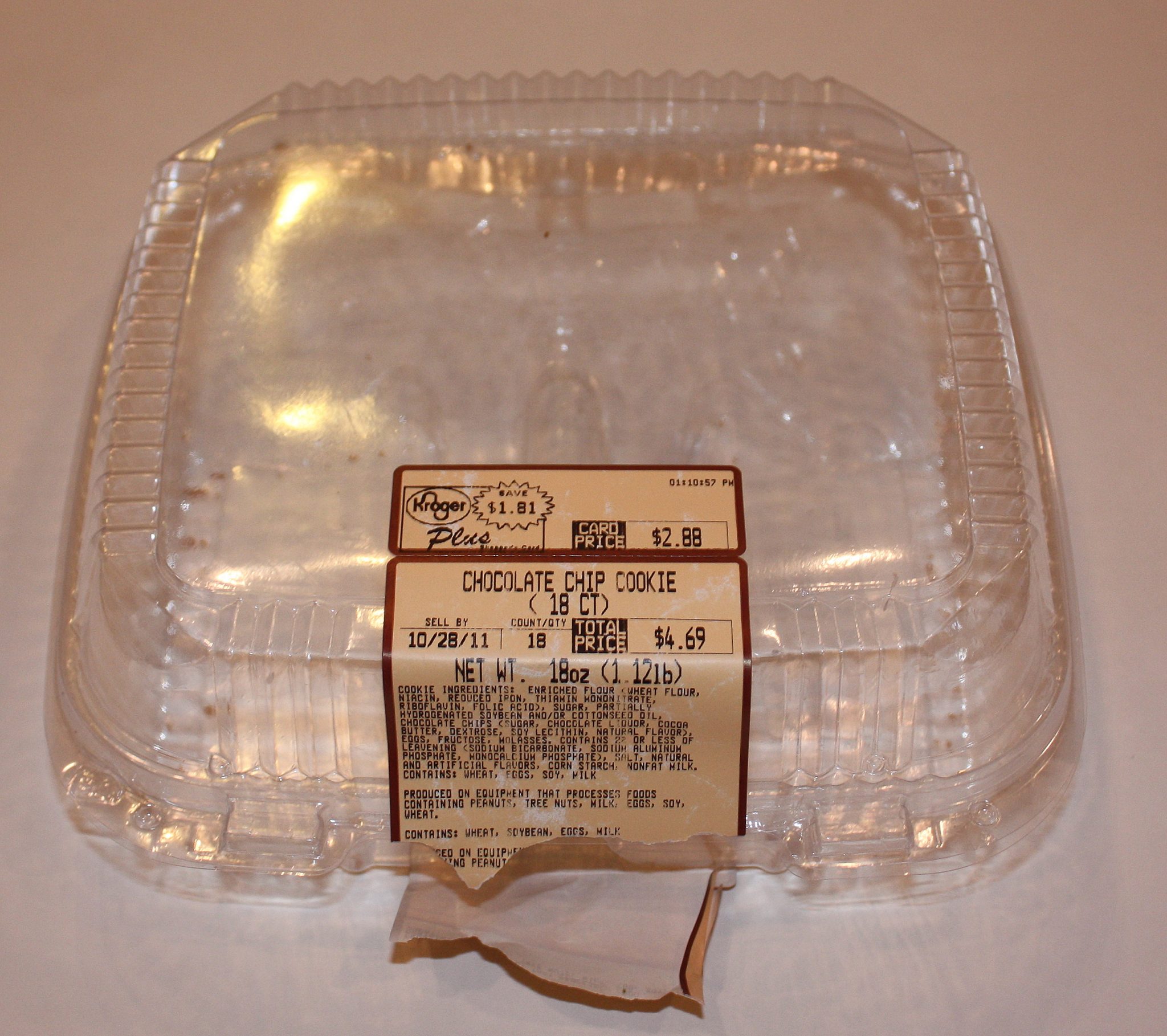
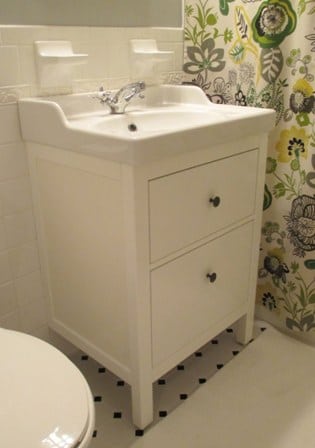
Your post couldn’t have been more timely, Paula. Just this afternoon I went outside to clip a few branches from a flowering tree to bring indoors and thought to myself how my clippers were in dire need of cleaning but didn’t know how. Now I do, thank you!
Thank you for this! I remember my parents always using vinegar to clean rust. I just couldn’t remember what else there was to it. Now I have it pinned of course and will remember for next time:)
Will have to use this method on my vintage tools…this is amazing…I just learned that you can kill weeds with a vinegar and salt solution….Vinegar…..a good thing!!
This will come in handy in all sorts of situations where rust has “ruined” something! Thanks!
Paula, I believe you could start a cottage business here in Lynchburg just cleaning rusty tools.
Great post!! Thanks so much for sharing and thanks for stopping by!
Hugs,
Debbie
You also can use CocoCola. Just soak the tool in the soda for a couple of days and and use aluminum foil to clean it up a bit.
Great tip! Thank you!
Good tips and a thorough tutorial! Thank you for linking up at The Blogger’s Pit Stop. I’m sharing your link on social media.
Carol (“Mimi”) from Home with Mimi
A long lasting remedy is to get sand and pour oil into it. Probably a cooking oil is best but frankly we used (new,unused) motor oil. In a sturdy container (metal bucket will last a lifetime) mix these two together and every time a tool is used, dip it into the oily sand mixture. Wipe it off and put it away. Sand cleans and the oil is protection from the elements. It will also clean up rusty tools. In cases like the one shown here, we’d simply put the implement in the sand and leave for a couple of days. Not everybody will agree with this method. Some will gasp at using motor oil but I’m way past 70 and in good health. Hubby lived past 93.
I remember Martha Stewart suggesting this tip back when she had her first shows. I need to try this!
Great post. Coca-Cola removes all rust from tools, makes pennies like new, no rubbing at all.
Great tip! Thank you!
Try coca cola too, works the same way
?
Thank you!
Wonderful to learn this!! I have found very few things that WHTE VINEGAR does not in some way help. Recently I was attacked by fire ants on 3 different occasions while doing yard work at the yard of our new home. If you have EVER been bitten by fire ants you know the pain and burning. Nothing worked so I poured my old standby white vinegar on them and the cool liquid was so soothing and neutralized the poison from the ant bites. I use it for a LOT of things so this is one more NEW idea for me. We DO have some of my husband’s grandfather’s vintage tools and they ARE rusty so we will get at this asap and renew them. I would not have tried this if I hadn’t see this on here. THANK YOU!
That is awesome that vinegar eased the pain of your fire ant attach. Good luck with removing the rust from your grandfather’s vintage tools. They should look great with minimal effort.
I love B4 and Afters! : )
So cool , I use vinegar for a lot of things I would have never thought of using it for my rusty tools, Thank you
Here’s one for you WD 40 works better than oil because of its WATER DISPLACEMENT properties. Just thought you would find that interesting. Thanks again
Thanks for the WD 40 tip!